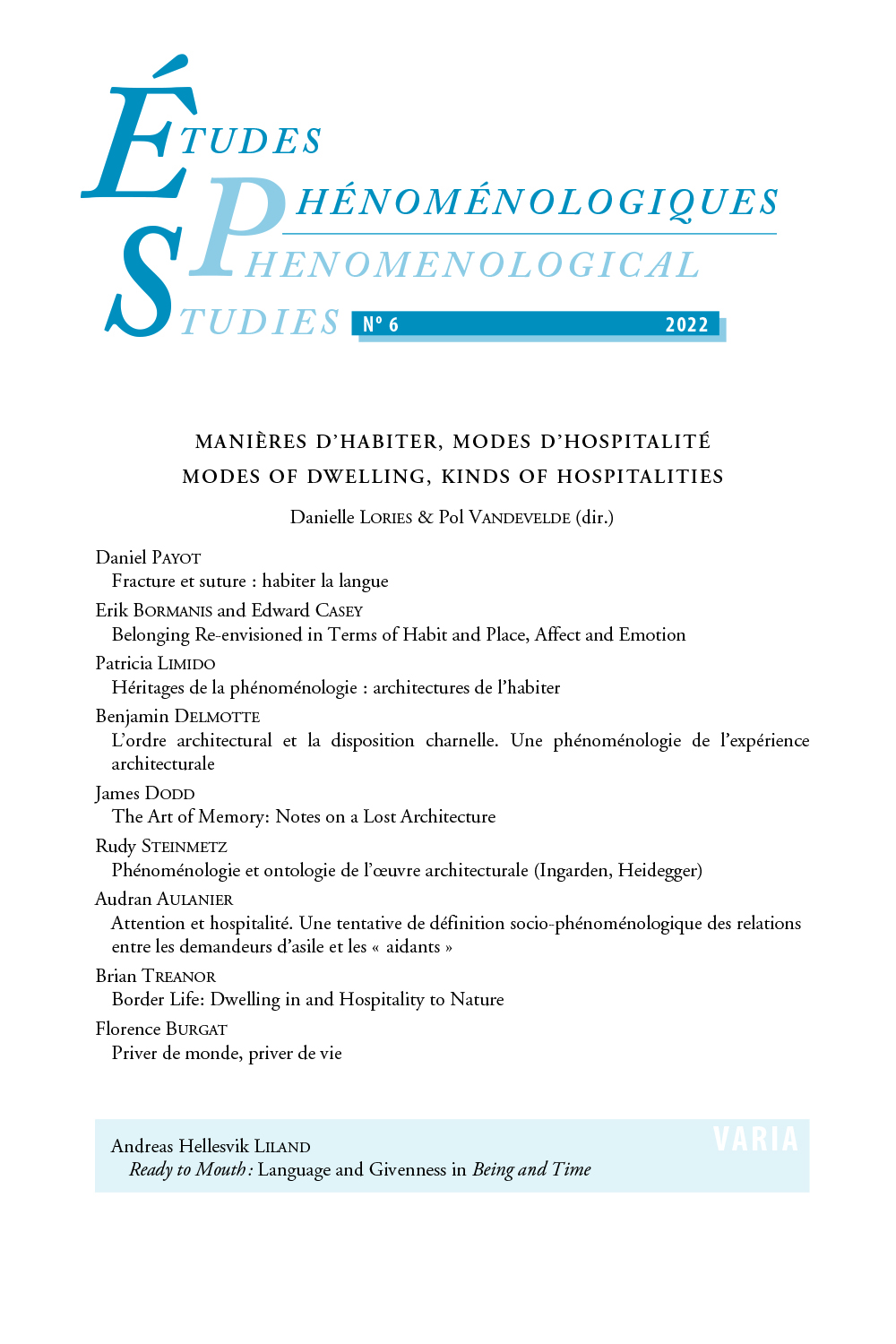 previous article in this issue previous article in this issue | next article in this issue  |

Preview first page |
Document Details : Title: Mind Embodied, Mind Bodified Subtitle: Merleau-Ponty and the Enactive Turn in Mind Sciences Author(s): VÖRÖS, Sebastjan Journal: Etudes phénoménologiques - Phenomenological Studies Volume: 4 Date: 2020 Pages: 91-117 DOI: 10.2143/EPH.4.0.3286913 Abstract : Mind sciences have undergone a decidedly 'embodied' or 'enactive' turn in the past two decades. In its original conception, put forward by Varela et al., this radical shift of perspective was depicted as a continuation of a research program founded by Merleau-Ponty, and was said to encompass two levels. On a theoretical level it consisted of a move away from the cerebrocentric, information-processing, and representational models of mind and cognition towards the corporeal, enactive, and world-involving models. On a (meta)epistemological and (meta)methodological level it argued for the need to expand the methodological array of mind sciences to include the disciplined study of lived experience, and it laid the foundations for a fruitful exchange between scientific and phenomenological investigations. However, the progressive popularization of the enactive-embodied narrative has made us witness the narrowing of its far-reaching scope, whereby changes on the theoretical level are being extricated from their broader philosophical framework and wedded to more traditional epistemologies and methodologies. In this paper I try to shed some critical light on some of these developments, focusing particularly on two neglected themes of Merleau-Ponty’s phenomenology that are highly relevant for contemporary enactive/embodied approaches: the unsurpassability of lived experience (cf. ‘behaviorist fork’) and the need to radically rethink the nature and dynamics of our reflective inquiries (cf. ‘radical reflection’). |
|


